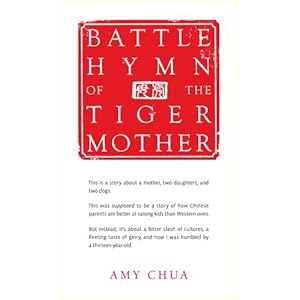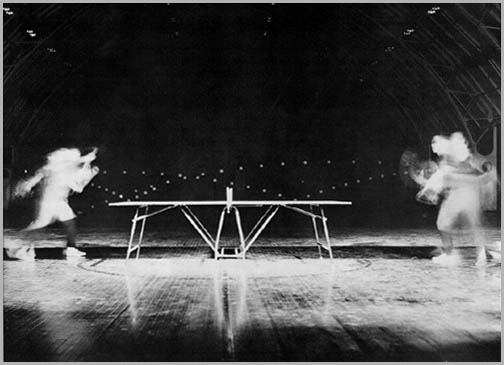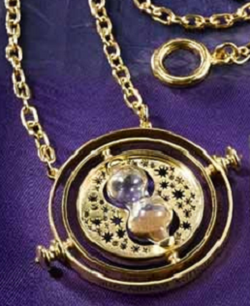60 Minutes is among the list of podcasts that I enjoy on my way too and from work. They recently did a piece they called, "
The Gift of Endless Memory", about people who basically remember everything that ever happened to them. Give them a day, and they'll tell you what happened that day to the smallest detail.
Listening to this amazing story I immediately wondered: Is that really a blessing, or more of a curse?
We tend to think that the greater the power of recall, the greater the blessing. But there's another side to the story. To a great degree, the power to forget is a very great blessing indeed.
While it must be great to remember the good things that happened in our lives, imagine also being able to recall, instantly, with vivid detail, the most painful memories of our lives. Imagine the ability to relive our most embarrassing moments, our most foolish mistakes, and our greatest missteps. Given the choice, I'd pass.
Many times, after making a particular fool of myself, or having a uniquely bad day at work, I am able to find solace in the fact that in a couple of days, the event will be a mere memory - a shadow of the pain that I'm feeling at that moment. I'll still have a vague sense of remorse, but not the sting of shame that I feel in the moment. I wonder what it must be like not to have that luxury; to know that the pain of loss or shame of mistake will forever be with me, and that I'll always be able to recall just how stupid I felt after I yelled at my wife, or messed up that email in work, or lost my temper.
It's interesting that in the piece, the reporter makes a vague allusion to one of the few people affected by this condition.
The first person ever identified with this ability is Jill Price, who says she feels haunted by the never-ending stream of memories and hasn't wanted to meet any of the others.
Indeed. I doubt I'd want to be highlighted for this condition either. Even during the report, we watch one of the women tear up at an event that had occurred years before.

Spanish painter Salvadore Dali's famous work,
The Persistence of Memory, has always resonated with me. I have no idea what Dali meant in the work, but it speaks to me about the fading quality of memory, and how memory degrades over time. I've never seen this as a sad phenomenon, but rather on the unique qualities of the human experience that allows us to function in the world, progress over time, and grow from past experiences without having to constantly relive them.
If you offered me this type of memory, I'm pretty sure that I'd say "no thanks." (Of course, it's a condition. You either have it or you don't, but that's besides the point.)
I'm not sure whether I would have called this condition a "blessing" or a "curse".
 Two meshulachim knocking on my door this week got me thinking about the way we do - and don't give tzedakah. We carefully examine the language the Torah uses to describe how God expects us to relate to the weakest members of society. We examine some rather frightening Midrashim, and conclude with a beautiful message from Kli Yakkar about the appropriate attitude towards giving tzedaka.
Two meshulachim knocking on my door this week got me thinking about the way we do - and don't give tzedakah. We carefully examine the language the Torah uses to describe how God expects us to relate to the weakest members of society. We examine some rather frightening Midrashim, and conclude with a beautiful message from Kli Yakkar about the appropriate attitude towards giving tzedaka.



 I was thinking of writing the same thing, but he got there first. And Americans are by now clearly sick of hearing the same aliyah mantra over and over. But at some point, maybe the message really will sink in. Perhaps that's the direction NBN should go in as it considers its marketing of aliyah. Instead of "Living the Dream" (they've already picked off all the dreamers), they should start targeting the Orthodox Jews living in Teaneck by explaining that if they're going to stress over the expenses of Jewish life, they might as well do it from the Jewish State.
I was thinking of writing the same thing, but he got there first. And Americans are by now clearly sick of hearing the same aliyah mantra over and over. But at some point, maybe the message really will sink in. Perhaps that's the direction NBN should go in as it considers its marketing of aliyah. Instead of "Living the Dream" (they've already picked off all the dreamers), they should start targeting the Orthodox Jews living in Teaneck by explaining that if they're going to stress over the expenses of Jewish life, they might as well do it from the Jewish State. Especially in Israel, religious coercion is automatically considered something negative, destructive and harmful. Yet, almost no one grows on their own. Their upbringing clearly included some level of coercion. By examining the story of the giving of the Torah, we'll look at the way God coerced the Jewish people, and how that might instruct the way we raise our own children.
Especially in Israel, religious coercion is automatically considered something negative, destructive and harmful. Yet, almost no one grows on their own. Their upbringing clearly included some level of coercion. By examining the story of the giving of the Torah, we'll look at the way God coerced the Jewish people, and how that might instruct the way we raise our own children.







